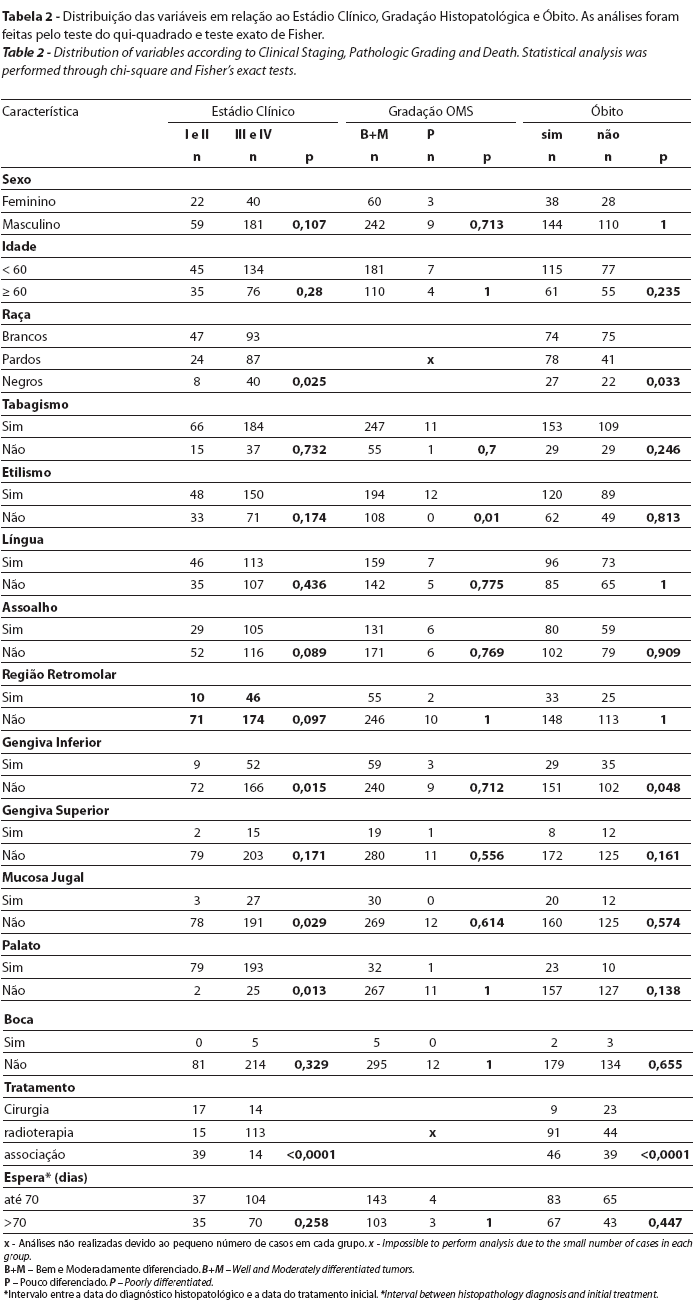Oral squamous cell carcinoma accounts for 90 to 95% of all malignant neoplasms of the mouth and it is one of most common cancers in Brazil. Five-year survival rates remain low and have not improved over the past decades, despite advances in therapy. The purpose of this study was to analyze the features and overall survival of patients diagnosed with oral squamous cell carcinoma in 1999 at the National Institute of Cancer. Male patients (79.4%) with a medium age of 56.7 years, with smoking or drinking habits (82.2%) comprised most of the sample. Tongue and floor of the mouth were the most prevalent sites of occurrence. Patients were diagnosed mainly at advanced stages of the disease (68.9% stages III and IV) and were treated with radiation therapy alone (53.6 %). Mean survival was 29.4 months, and patients diagnosed in early stages had better survival rates, as well as those who were surgically treated and those who did not show cervical node metastasis at diagnosis. Tumors located in the palate or in the buccal mucosa presented the worst prognosis. Cox regression analysis showed that T1 or T2 lesions (p=0.001), with no neck metastasis (p=0.012) and anatomic site other than buccal mucosa (p=0.021) were independent predictive factors of a better survival rate. Oral cancer diagnosis still occurs in advanced stages, and it negatively influences overall survival, so there should be efforts to prepare and train professionals to recognize lesions at early stages and to make the population at greatest risk aware of the disease.
Squamous cell carcinoma; Oral cancer; Prognosis; Survival analysis




